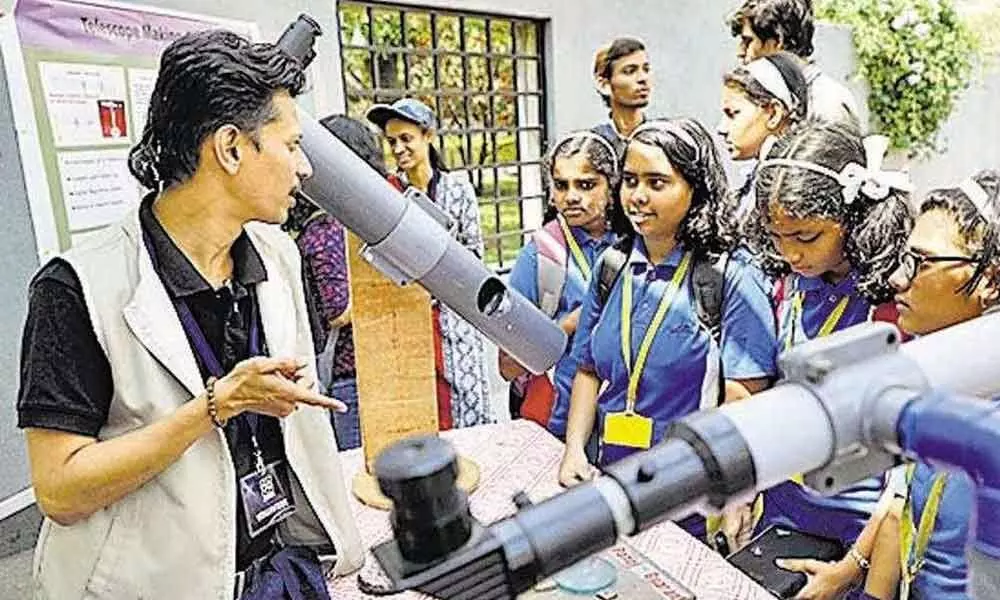Scientific temper and Indians: Do we really lack it?

Representational Image
Madabhushi Sridhar has written a thought-provoking article on scientific temper as a fundamental duty (THI 24th August 2021). For Nehru, the west held all solutions for Indian problems. His obsession with the future made him reject the Indian past. His seven principles of a new India based on modernity: national unity, parliamentary democracy, industrialisation, socialism, scientific temper, secularism, and non-alignment, gained a supreme moral authority. Not questioning it has stunted the growth of political philosophy in India, says economist Bhikhu Parekh. Scientific temper desired the dogmatic, mystical, speculative, uncritical, inward-looking India to become a strong society like Europe by fostering rational and empirical reasoning, developing science and technology, and rejecting faith. Nehru and those following him held the Orientalist view strongly that science and technology was primitive in ancient India and one of the reasons for its colonisations.
As Dr Balagangadhara explains in his comparative studies on cultures how religion is the root structural model for Western culture. Religion, encouraged always by the 'why' question, searches for underlying explanations to connect unrelated and related phenomena to each other. Thus, the scientific attitude is contiguous with a religious attitude. This is the reason the natural sciences emerged in religious cultures. Further, when the ever-expanding sciences start threatening the limits of knowledge of religious doctrines, there is an obvious antipathy. The hostility of the Church to scientific theories is a consequence of this clash. Christianity ended up treating the scientific theories as rivals. In contrast, Indian culture (with innumerable traditions) structures on 'rituals' where the dominant question is 'how' or the performative ability. This also produces knowledge and science but in a different manner. The most obvious difference is the almost unknown 'clash' between the sacred and the secular in Indian culture.
The five groups of texts – Vedas, Upavedas, Vedangas, Puranas, and Darsanas with their thousands of texts laid the foundation for the knowledge and the wisdom of our heritage. These covered the concrete and the abstract, the secular and the spiritual. David Pingree estimates that India has at least 30 million surviving ancient manuscripts in Indian libraries, repositories, and private collections. They deal with a huge array of topics: philosophies, systems of yoga, grammar, language, logic, debate, poetics, aesthetics, cosmology, mythology, ethics, literature of all genres from poetry to historical tradition, performing and non-performing arts, architecture, mathematics, astronomy, astrology, chemistry, metallurgy, botany, zoology, geology, medical systems, governance, administration, water management, town planning, civil engineering, ship making, agriculture, polity, martial arts, games, brainteasers, omens, ghosts, accounting, and many more. The production was colossal and in almost every regional language. No student of India enters college internalising this kind of information about India unfortunately.
Western science emerged and thrived (and still does) on a strong idea that man is the peak of creation and the purpose of nature is to serve humans. These are ideas antithetical to Indian traditional values. Knowledge and science grow but it is more in harmony with the rest of creation and nature. The West, obsessed with order and chaos, hence produced philosophers, theologians, and scientists trying to make theories breaking away from practical life. The other type of culture (Indian or Asian) had invested its intellectual energies in creating, sustaining, and continuously modifying a social or practical order. Practical actions, like rituals, became sophisticated patterns of interaction.
The two cultures met in an unfortunate set of circumstances. The Asians were willing to learn and the West thought it could only teach, says Balagangadhara. Later Indian intellectuals and politicians with a heavy 'colonial consciousness', go on implying that somehow Indians do not have a scientific temper which they need to inculcate as a 'national duty'. It is only a profound ignorance of what Indian culture is all about and what Indian scientific achievements in the past have truly been. Our influential academia in the post-independent India infested with a single ideology of the 'exploiter and exploited' have in fact inflicted far more damage to the Indian intellect than the combined Islamic and colonial rule of hundreds of years.
Dr Pingali Gopal, Warangal











